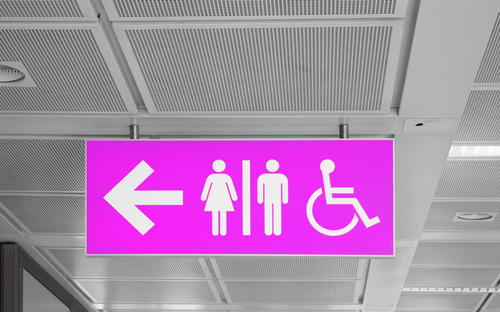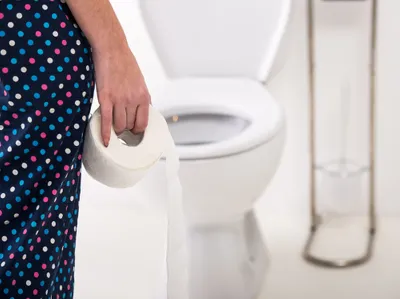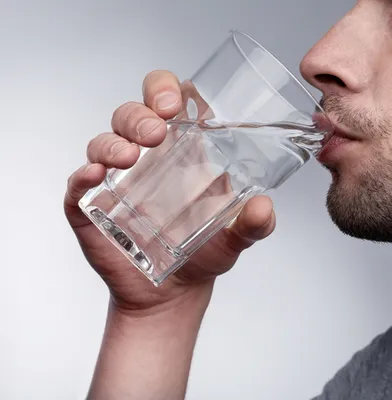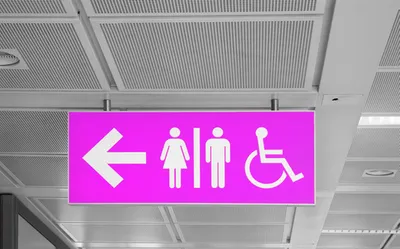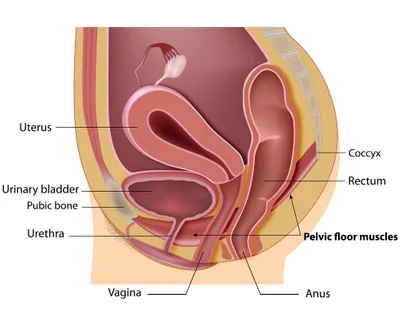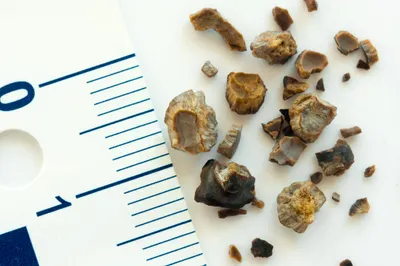If you measure road trips by how many rest stops you take along the way or your previous nights sleeps by how many times you had to visit the toilet, you may have a bladder issue that’s causing all of those sudden trips to the loo. Your urination urgency can be caused by several issues—from how much water your drink (or don’t drink) to more severe health conditions (i.e., diabetes or kidney issues).
Here are seven reasons why you gotta go, gotta go, gotta go…
1. Overactive Bladder
According to Dr. Betsy Greenleaf, a New Jersey-based uro-gynecologist, overactive bladder most typically affects women with age and nerve decline. The other issue, according to Dr. Greenleaf, may be a bladder that’s just not emptying completely with urination.
If you suspect you have an overactive bladder (you have to go more than each hour, or 8 times per day), you should bring the issue up with your doctor who can recommend a treatment (i.e., medication) to help relax the bladder so it empties more completely.
2. Your Medications
Several prescription medications can cause the bladder to produce excess urine, says Dr. Tamara Bavendam, program director of the Division of Kidney, Urologic, and Hematologic Diseases at the National Institute of Diabetes and Digestive and Kidney Diseases.
Dr. Bavendam points to high blood pressure medications, like diuretics or water pills, as well as anxiety and depression medicines, like anticholinergics. All of these medications have been linked to triggering excess urine production from the kidneys, as well as causing the bladder to retain urine rather than completely emptying.
3. You’re Dehydrated
Not what you were expecting, huh? Typically consuming too much water is blamed for increased urination. However, dehydration may actually be the culprit, according to the Mayo Clinic.
With less liquid, the urine becomes much more concentrated, thus irritating the bladder and causing that “gotta go” (or dysuria) sensation. The key is to drink just enough water so your urine is straw yellow in hue—that signals enough hydration to dilute the urine and not irritate the bladder while not having you run to the loo every 20-mintes.
4. Diabetes
The sudden and uncontrollable urge to wee is most often linked to diabetes. According to the magazine, Diabetes Self Management, diabetes can result in a series of bladder complications.
For instance, unmanaged blood glucose may cause the sudden urge to go as well as voiding (or the inability to empty the bladder). In fact, high blood sugar impacts the ability of the kidneys to process excess glucose—resulting in the generation of more urine.
5. Multiple Sclerosis
While you may blame your constant need to be near a bathroom on a small bladder, WebMD says sudden changes in urine frequency can signal a few underlying health issues, such as multiple sclerosis (MS).
Research from WebMD explains that MS causes nerve damage that makes it more difficult to control all muscles, including those connected to the bladder. Other underlying health conditions that affect the bladder are tumors pressing against hat abdomen and herniated discs in the back, which can compress the nerves of the bladder.
6. Weakened Pelvic Floor Muscles
With age our muscles naturally suffer some form of decline, including those muscles in the bladder. Research from University of Chicago Medicine, notes that many women suffer from weak pelvic-floor muscles as they age—particularly if they’ve given birth, which can stretch and damage bladder tissues.
However, kegel exercises can help tighten the muscles of the pelvic floor, which support and hold up the bladder to control urinary urgency and hold off an embarrassing accident. To exercise your pelvic floor muscle, squeeze and hold the muscles like you’re trying to cease the flow of urine. Hold and squeeze for 10-seconds, then rest and repeat for a set of 10 to 15 contractions each day.
7. Kidney Stones or Kidney Infection
One of the most telltale signs of a kidney infection is urinary urgency. If you’ve ever suffered one, you’re familiar with that heavy, painful feeling in your lower abdomen. According to the Mayo Clinic both kidney stones and a urinary tract infection (UTI) cause bladder irritation and dysuria.
A UTI is usually distinguished by urinary urgency as well as pain and burning when urinating. However, you’ll recognize the presence of a kidney stone by the agonizingly sharp pangs in your back or sides.
